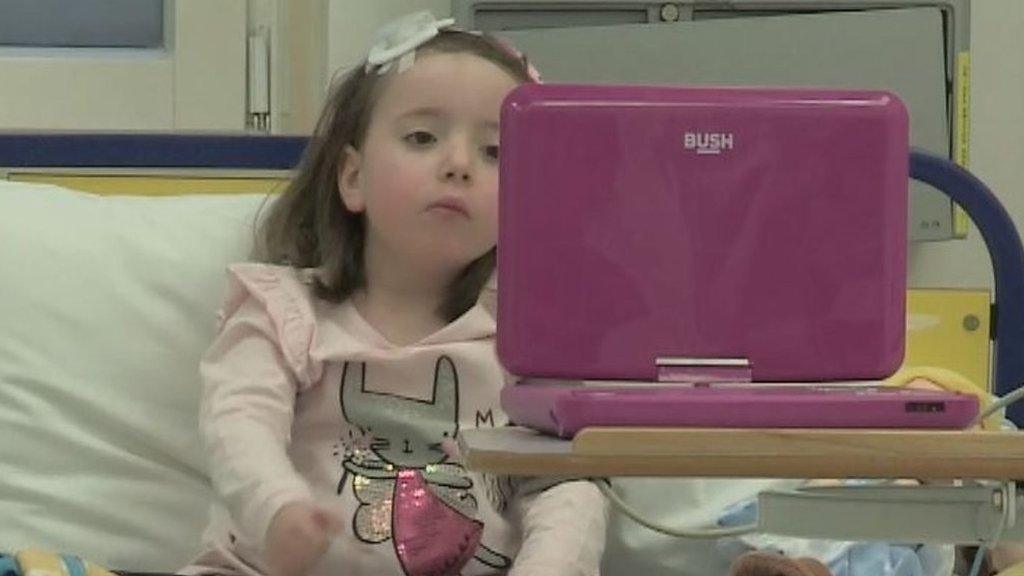Batten disease treatment: Parents can take fight to High Court
- Published
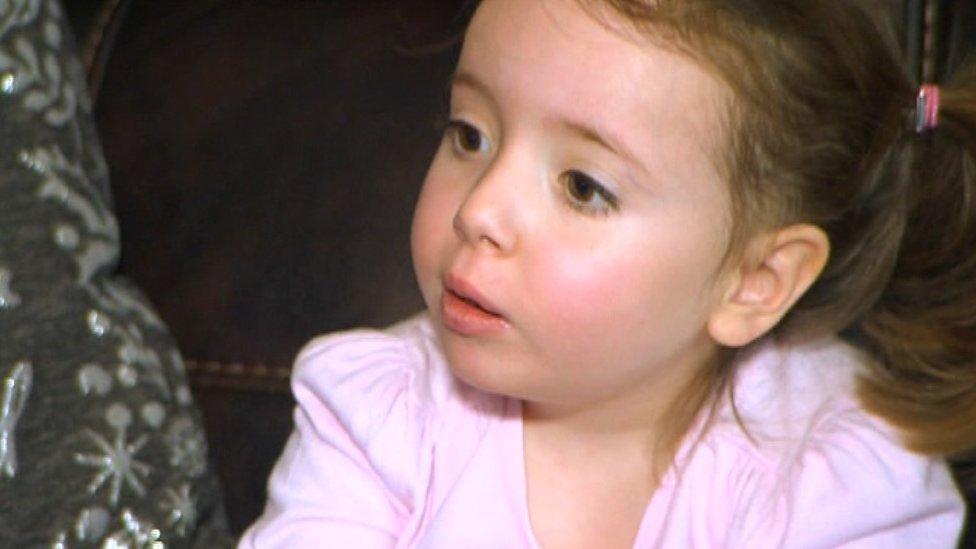
Nicole Rich has had treatment at Great Ormond Street Hospital as part of a drugs trial
Two sets of parents of children with a rare degenerative disease can take a fight for treatment to the High Court.
The four children, from Newcastle and Cheshire, have Batten disease, which is incurable and causes seizures, visual impairment and mobility loss.
Their parents have been refused NHS funding for a drug which could slow its progression.
The National Institute for Health and Care Excellence (NICE) said it could not be certain it was value for money, external.
NICE has said it is unable to comment on the legal proceedings.
The families have been granted permission for a judicial review to decide whether the decision not to fund treatment is legal.
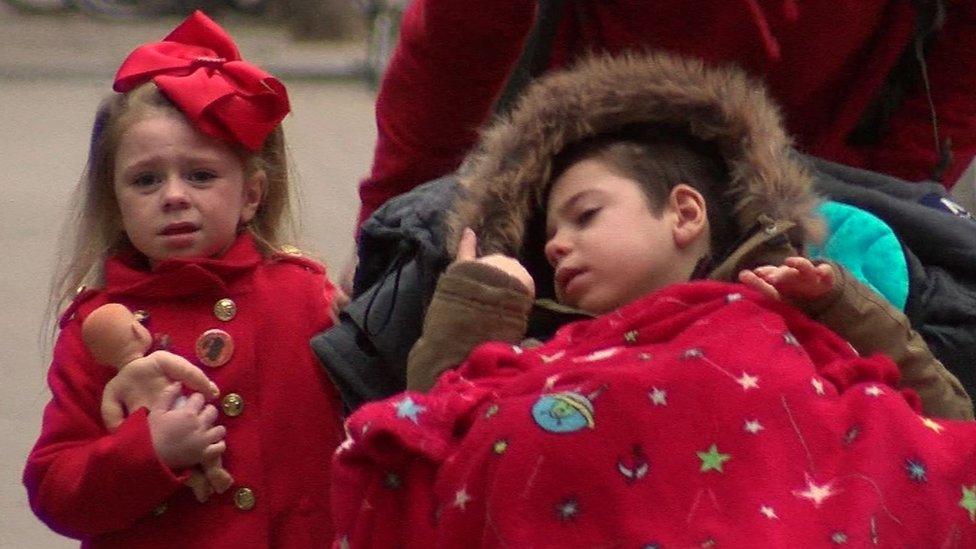
The parents of Amelia and Ollie Carroll say the treatment has been beneficial
Seven-year-old Nicole Rich and her sister Jessica, three, from Throckley, receive the drug, cerliponase alfa, through a scheme funded by an American pharmaceutical company.
Their parents, Gail and Matthew, said, since taking it, Nicole had shown no further symptoms and Jessica had not developed any.
Mrs Rich said the treatment had "given us real hope for the future, so it is difficult to take that it has not been recommended for use here".
"How can it be available in 23 other countries but not here?" she said.
The parents of eight-year-old Oliver Carroll, from Poynton, also said the treatment had been beneficial.
His six-year-old sister Amelia has not developed symptoms while taking it.
Lucy and Mike Carroll said it was "heart-breaking to think that individuals have made the decision that our children should not have access to the only treatment that could save their lives".
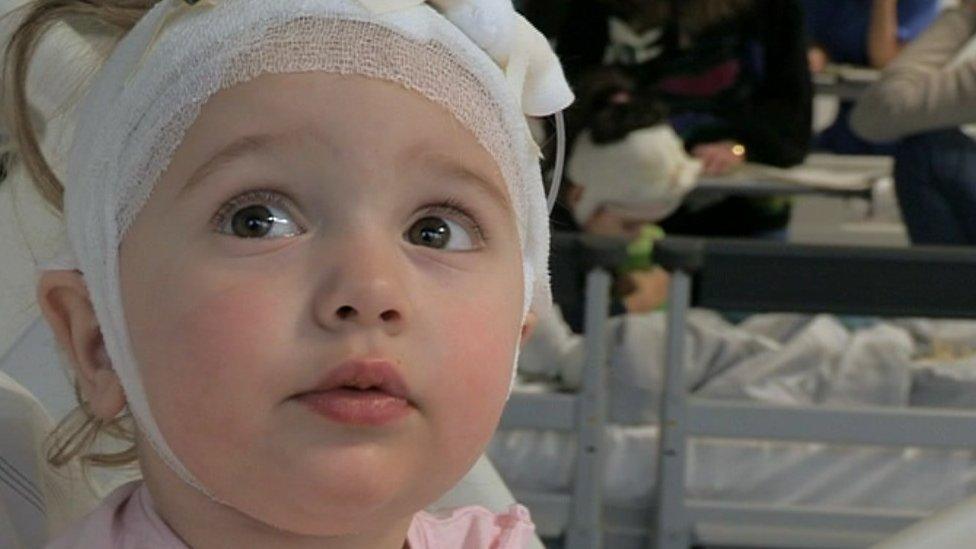
Jessica travelled to Hamburg for treatment until last year when she was allowed join her sister in London
Children with the condition live until about 10.
The families' lawyers said, with treatment - which costs about £500,000 a year - they could live to 60.
They believe NICE's decision not to fund it is unlawful and a breach of human rights legislation.
The hearing is scheduled for 16 October.
Related topics
- Published5 August 2019
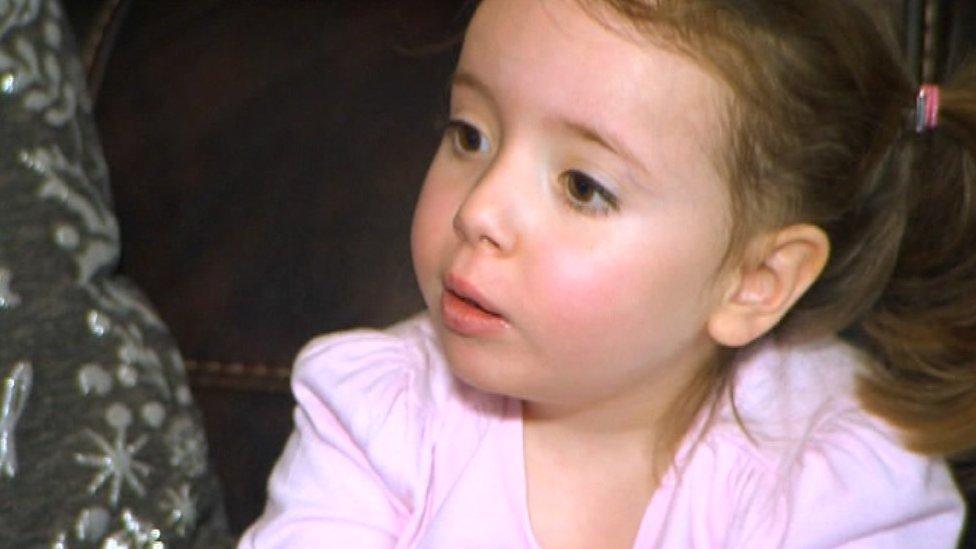
- Published22 February 2019

- Published13 March 2018
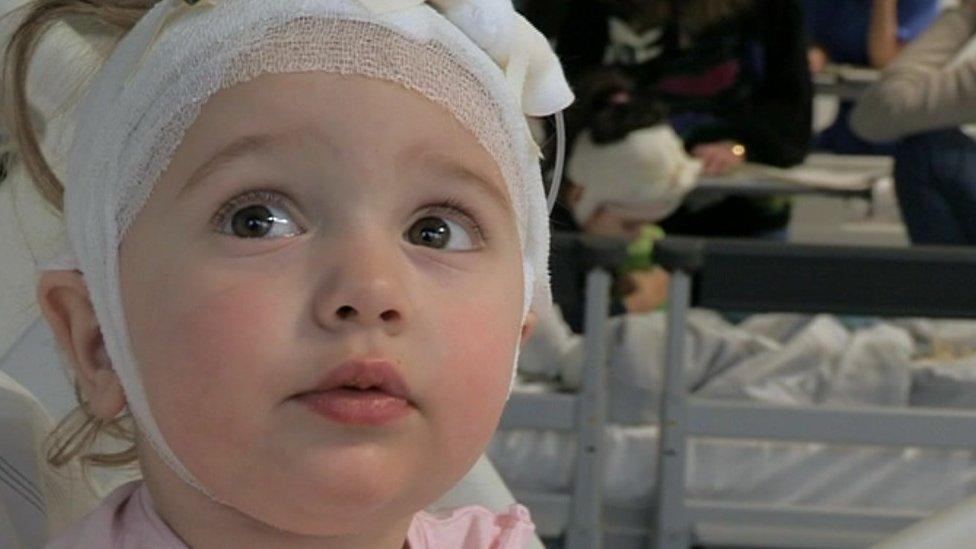
- Published22 January 2018
